Find Help
More Items From Ergsy search
-
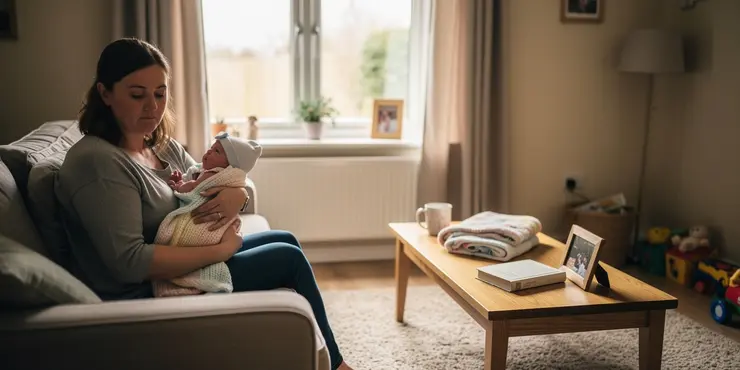
What it's like to have a baby with Edwards' syndrome - My Story - Chloe and Penelope | NHS
Relevance: 100%
-

Having a child with Edwards' syndrome (trisomy 18) | NHS
Relevance: 96%
-
Can baby sleep pillows prevent flat head syndrome?
Relevance: 59%
-
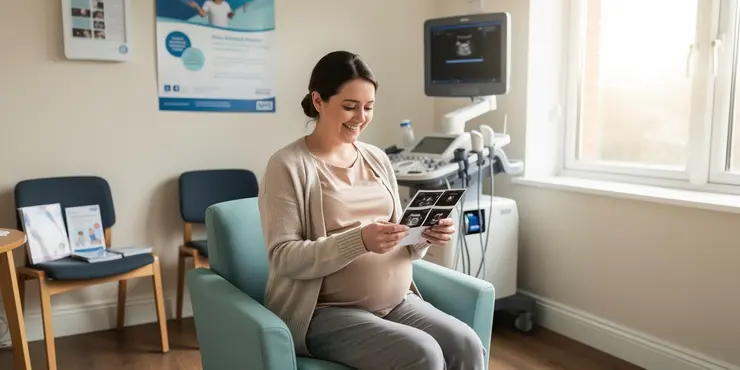
Screening tests for you and your baby | NHS
Relevance: 54%
-
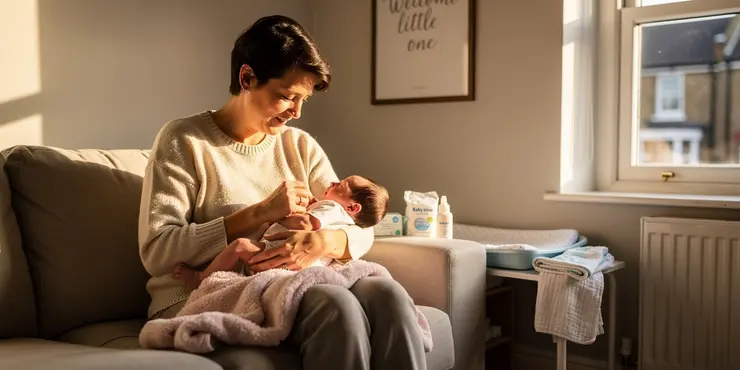
Are baby sleep pillows safe?
Relevance: 47%
-
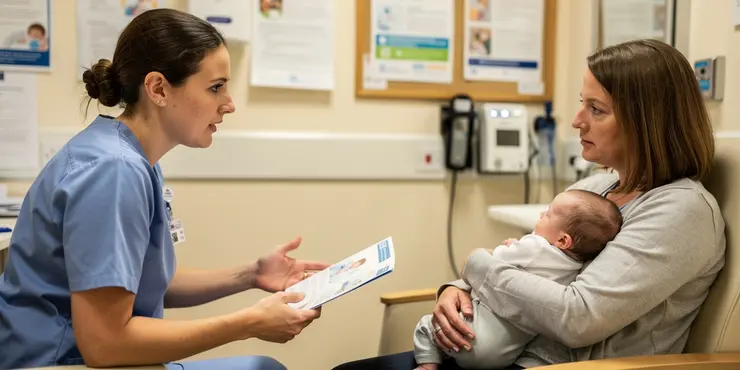
What are the risks associated with baby sleep pillows?
Relevance: 45%
-
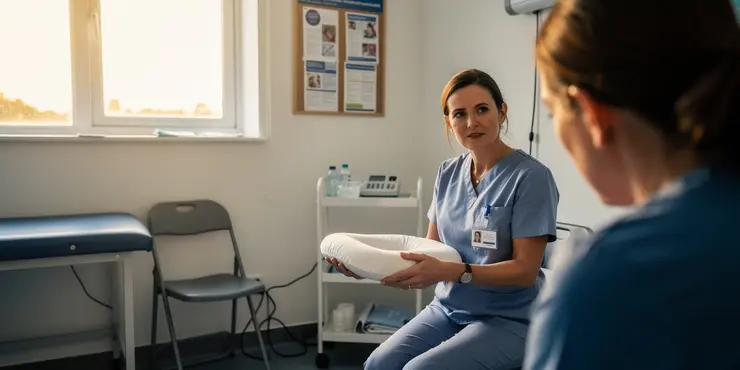
Are there any benefits to using baby sleep pillows?
Relevance: 44%
-
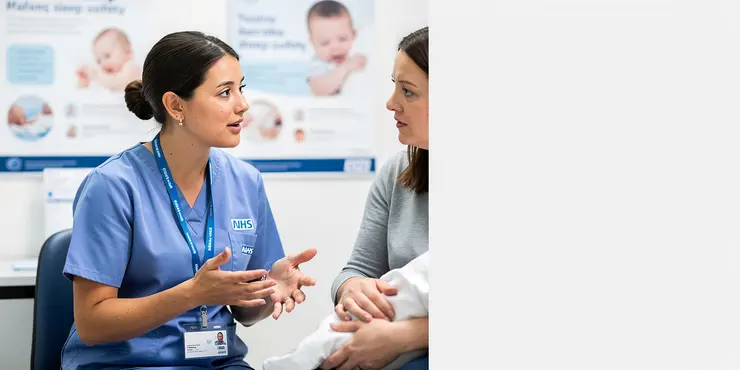
Is it okay to use a baby sleep positioner?
Relevance: 43%
-
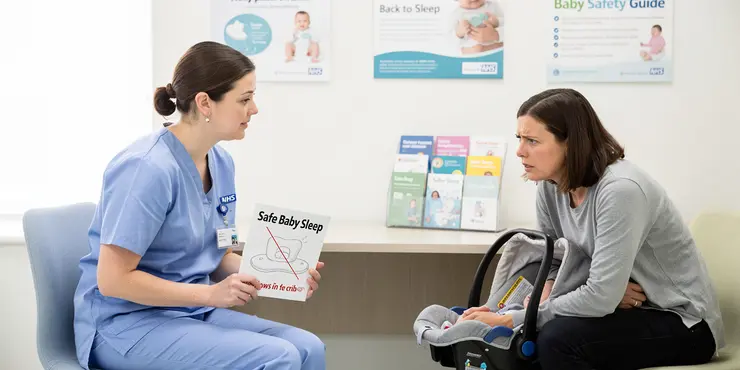
Why are baby sleep pillows not safe for infants?
Relevance: 41%
-
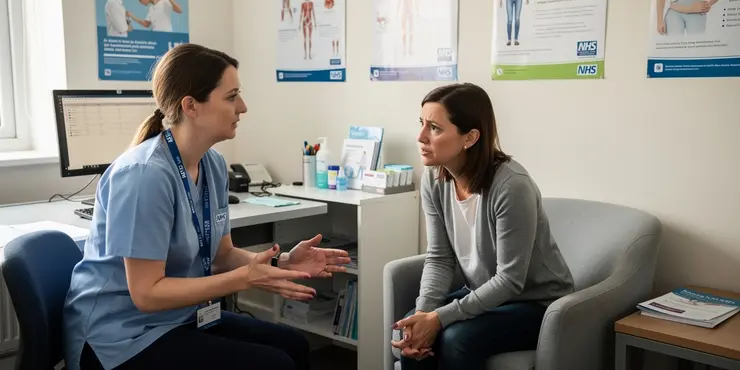
At what age is it safe for a baby to use a pillow?
Relevance: 40%
-
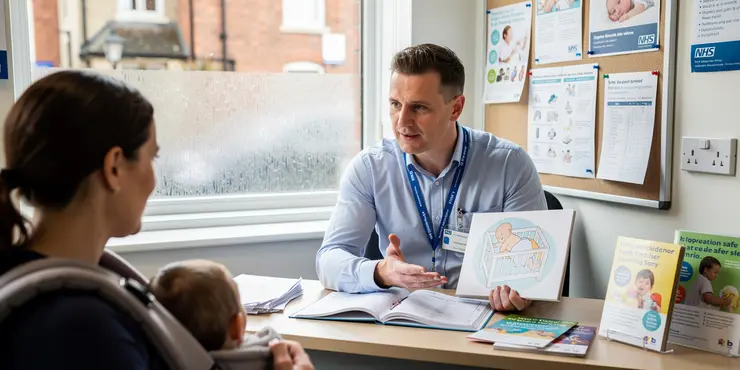
What do pediatricians recommend about baby sleep pillows?
Relevance: 40%
-

Are there any regulations on the sale of baby sleep pillows?
Relevance: 39%
-
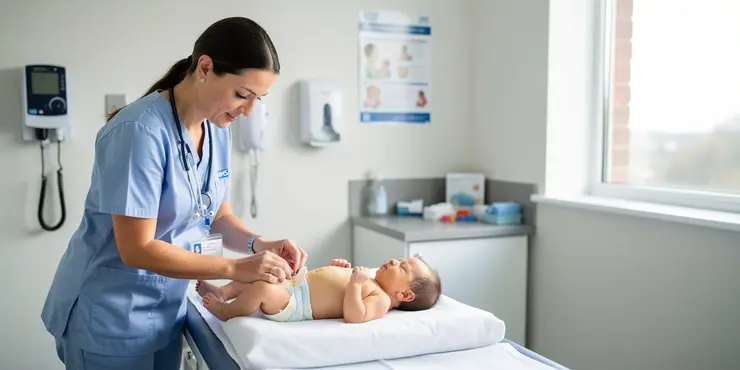
Jaundice in babies
Relevance: 39%
-
What should I do if my baby has a preference for sleeping with a pillow?
Relevance: 39%
-
Can jaundice reoccur in babies?
Relevance: 39%
-
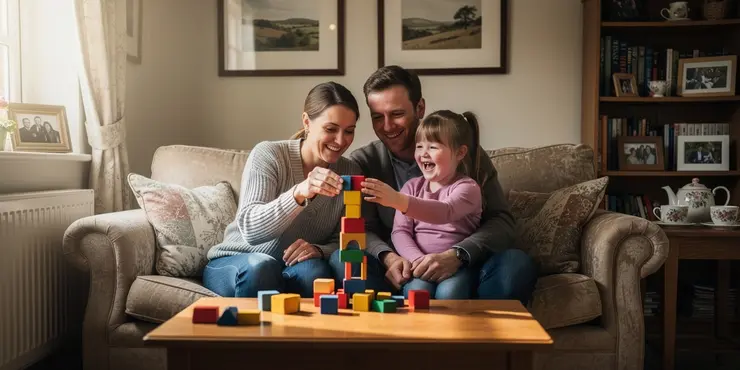
Down's syndrome: Emily's story | NHS
Relevance: 39%
-

Postpartum Health: Mother and Baby
Relevance: 38%
-

Safe sleeping and reducing the risk of Sudden Infant Death Syndrome (SIDS)
Relevance: 38%
-
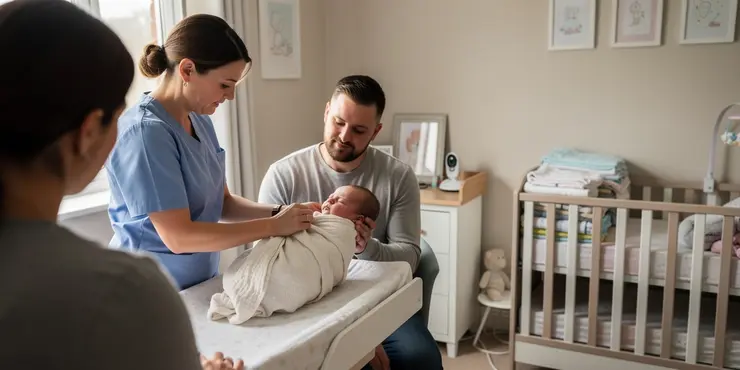
What alternatives to baby sleep pillows are considered safe?
Relevance: 38%
-

Can baby sleep pillows help with reflux issues?
Relevance: 36%
-
What can increase the risk of jaundice in a baby?
Relevance: 36%
-

What are the symptoms of jaundice in a baby?
Relevance: 35%
-
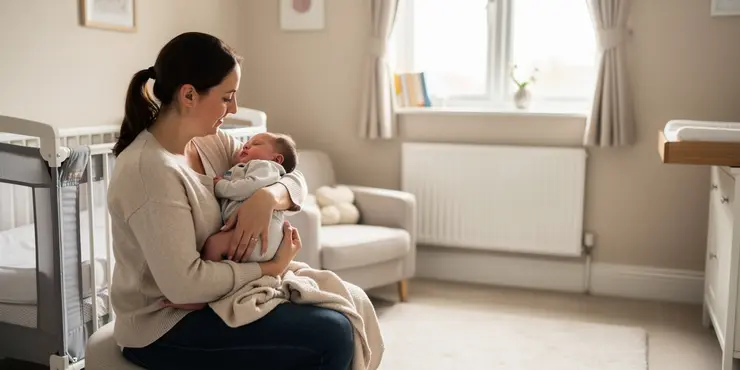
Do crib wedges pose the same risks as baby sleep pillows?
Relevance: 35%
-
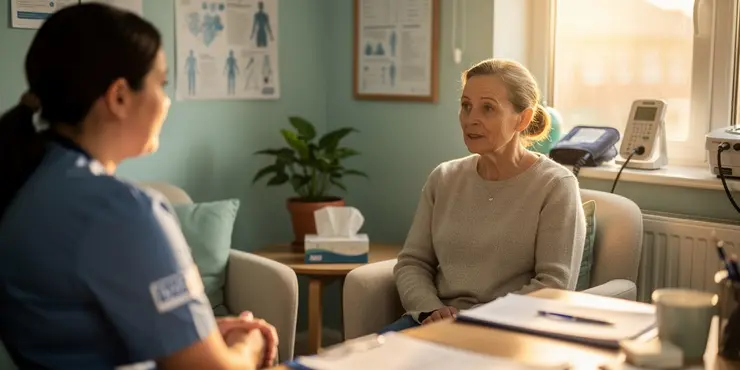
What is Cushing's syndrome?
Relevance: 35%
-
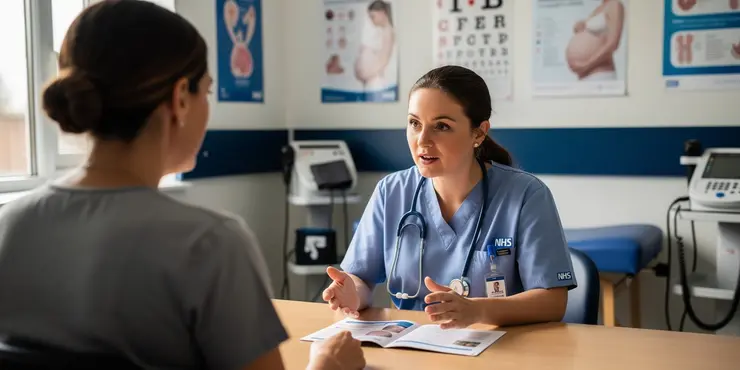
What is congenital rubella syndrome?
Relevance: 35%
-
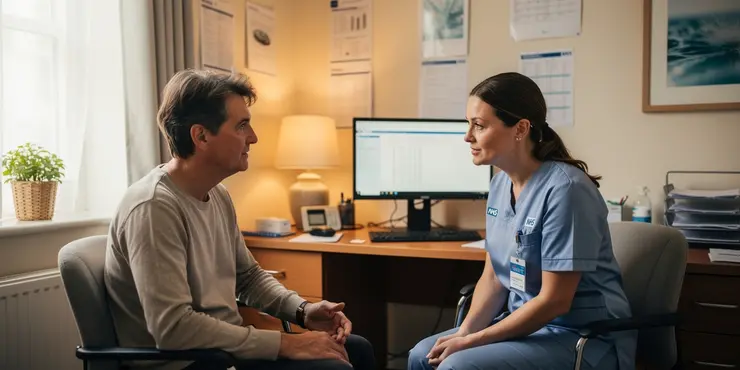
Munchausen's syndrome | NHS
Relevance: 35%
-
Is it safe to sunbathe a baby with jaundice?
Relevance: 34%
-
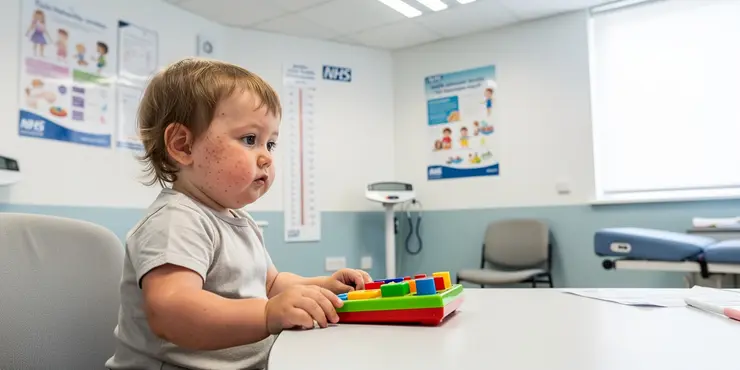
Prader-Willi Syndrome | NHS
Relevance: 34%
-
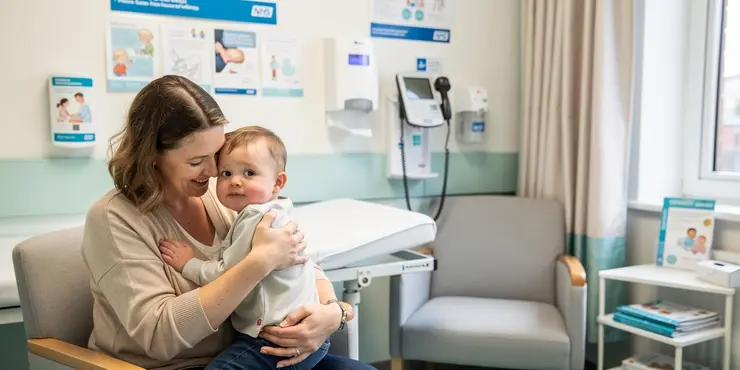
Having a child with Down's syndrome | NHS
Relevance: 34%
-
Do formula-fed babies get jaundice?
Relevance: 34%
-

What steps can I take to ensure my baby's safety while sleeping?
Relevance: 34%
-
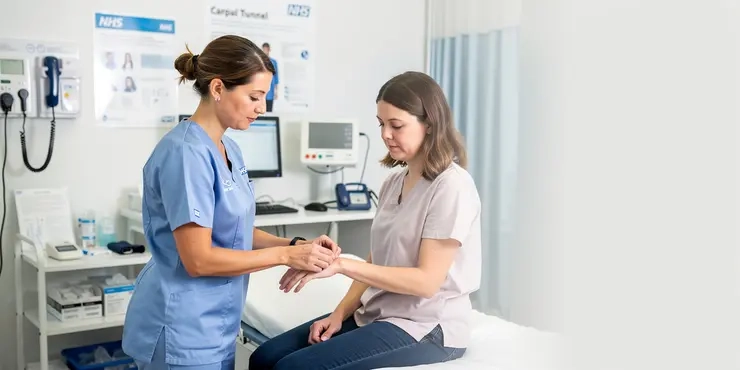
Carpal Tunnel Syndrome
Relevance: 33%
-
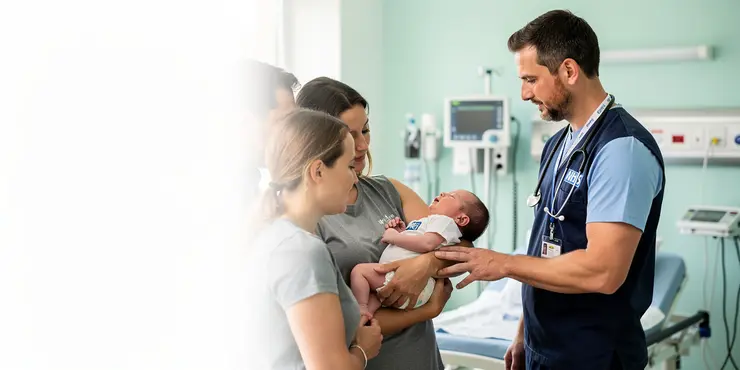
Why do babies get jaundice?
Relevance: 33%
-
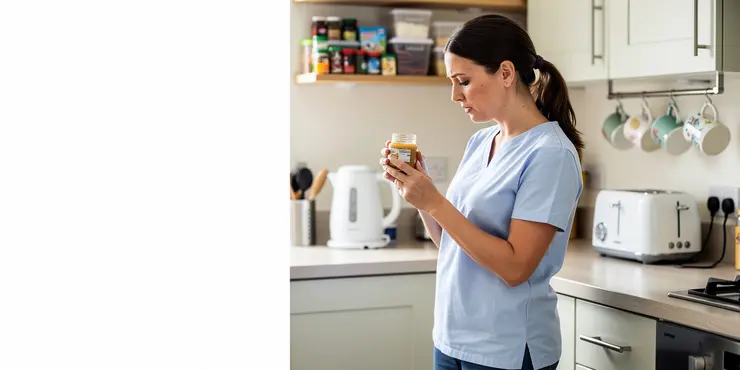
What signs indicate spoiled baby food?
Relevance: 33%
-
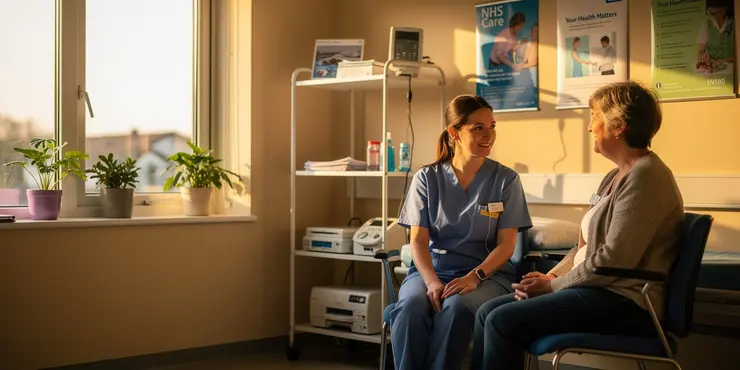
Is chronic fatigue syndrome contagious?
Relevance: 32%
-

What storage practices should I follow for baby food?
Relevance: 32%
-

How do I know if my baby food is safe?
Relevance: 32%
-
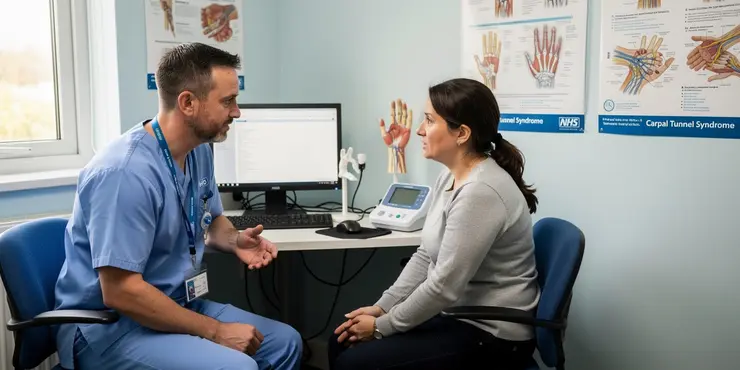
What causes Carpal Tunnel Syndrome?
Relevance: 32%
-
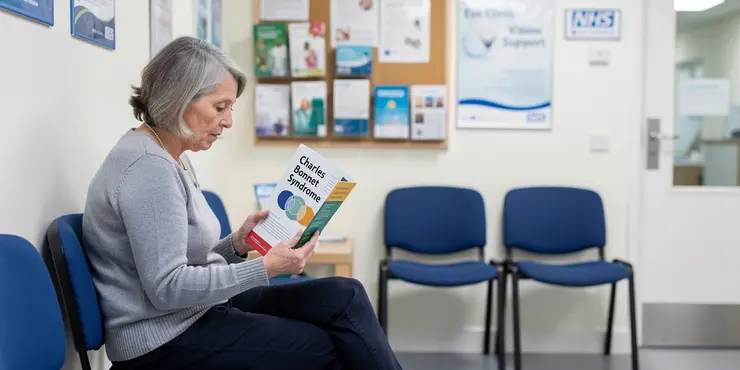
Charles Bonnet Syndrome
Relevance: 32%
-

How is postnatal depression different from the 'baby blues'?
Relevance: 32%
What it's like to have a baby with Edwards' syndrome - My Story - Chloe and Penelope
The Diagnosis
My journey began with the devastating diagnosis that my baby, Penelope, had Edwards' syndrome, also known as Trisomy 18. During a routine ultrasound at 20 weeks, anomalies were detected, leading to further testing. We were given the heartbreaking news that babies with this chromosomal condition rarely survive beyond their first year. This was an incredibly overwhelming and emotional time for my family and me.Support and Care
In the UK, the NHS provides significant support for families dealing with a diagnosis like Edwards' syndrome. We were immediately connected to a specialist team that included genetic counselors, pediatricians, and hospice care professionals. This team offered not just medical advice but also emotional and psychological support, helping us to navigate the difficult decisions ahead.Life with Penelope
Despite the grim prognosis, we decided to carry Penelope to term and cherish every moment we had with her. The NHS arranged for a care plan that allowed for home visits by specialized nurses, ensuring Penelope had the best possible quality of life. Each day with her was a precious gift, filled with love and small milestones that we never took for granted.Community and Resources
It was comforting to find support networks, both online and in local communities, where other parents shared their stories and coping strategies. Organisations such as SOFT UK provided valuable resources that guided us through this journey. The shared experiences of others were a source of strength and solidarity during tough times.Reflections and Hope
Having a baby with Edwards' syndrome is undeniably challenging, but it also brings unique joys and profound moments of love. The support from the NHS and the community made a world of difference in our lives. Penelope’s brief time with us has forever changed our outlook on life, underscoring the importance of compassion, support, and cherishing each day.Having a Baby with Edwards' Syndrome - Our Story: Chloe and Penelope
The Diagnosis
Our story started when the doctors told us that our baby, Penelope, had Edwards' syndrome. This is also called Trisomy 18. We found out when I had a scan at 20 weeks. This was a very hard and sad time for my family because babies with this condition often do not live past one year.Support and Care
In the UK, the NHS helped us a lot. We got support from a special team of doctors and counselors. They gave us medical advice and also helped us with our feelings. They made the hard decisions a little easier to manage.Life with Penelope
We decided to have Penelope and enjoy every moment with her. The NHS made a plan so nurses could visit our home to take care of her. Every day with Penelope was very special. We filled our days with love and enjoyed all the little moments with her.Community and Resources
We found comfort by talking to other parents online and in our community. Groups like SOFT UK helped us a lot. Other parents shared their stories and tips, which made us feel stronger.Reflections and Hope
Having a baby with Edwards' syndrome is very hard, but it also brings special happiness and love. The help from the NHS and others made a big difference for us. Penelope taught us to value compassion and cherish every day.Frequently Asked Questions
What is Edwards' syndrome?
Edwards' syndrome, also known as trisomy 18, is a serious genetic condition caused by an extra copy of chromosome 18.
How common is Edwards' syndrome?
Edwards' syndrome is rare, occurring in about 1 in every 5,000 live births in the UK.
What are the symptoms of Edwards' syndrome?
Symptoms can include severe developmental delays, heart defects, and abnormalities in other organs.
What challenges do parents of babies with Edwards' syndrome face?
Parents face emotional, physical, and financial challenges, including frequent medical appointments and dealing with the uncertainties of their baby’s health and development.
How is Edwards' syndrome detected?
It can be detected prenatally through screening tests like ultrasounds and confirmed with diagnostic tests such as amniocentesis.
What support is available to parents of babies with Edwards' syndrome?
Support includes genetic counseling, specialist care teams, and various support groups that provide emotional and practical assistance.
What is the life expectancy for a baby born with Edwards' syndrome?
Life expectancy is often very short, with many babies not surviving beyond their first year. Some may live longer, but severe health issues are common.
How can parents prepare for the arrival of a baby with Edwards' syndrome?
Parents can prepare by connecting with medical and support teams, learning about the condition, and making a plan for both medical care and emotional support.
What are the treatment options for a baby with Edwards' syndrome?
There are no cures, but treatments focus on managing symptoms and complications to improve quality of life.
Can Edwards' syndrome be cured or prevented?
There is no cure or prevention for Edwards' syndrome; it occurs randomly due to a genetic anomaly.
How can friends and family support parents of a baby with Edwards' syndrome?
They can offer emotional support, lend a helping hand with day-to-day tasks, and educate themselves about the condition to better understand the parents' experiences.
What emotional challenges might parents face after a diagnosis of Edwards' syndrome?
Parents may experience grief, fear, and anxiety about their baby's uncertain future, as well as the stress of managing intensive medical care.
What is the role of genetic counseling in dealing with Edwards' syndrome?
Genetic counseling helps parents understand the condition, its implications, and the likelihood of it occurring in future pregnancies.
How do healthcare providers in the UK manage a pregnancy diagnosed with Edwards' syndrome?
Management involves detailed monitoring, consultations with specialists, and discussions about potential outcomes and care plans for after birth.
How can parents balance hope and realistic expectations with an Edwards' syndrome diagnosis?
Parents can balance hope and realism by staying informed, seeking support, and cherishing their baby's life regardless of its length or challenges.
What is Edwards' syndrome?
Edwards' syndrome is when a baby is born with an extra chromosome.
Chromosomes are tiny parts of your body that hold genes. Genes make you who you are.
If a baby has Edwards' syndrome, it might have slow growth, a small head, and problems with organs.
Some babies with Edwards' syndrome have a hard time living a long time.
To understand better, you can use picture books or ask a helper to explain.
Edwards' syndrome is another name for trisomy 18. It is a serious health problem that happens when there is an extra piece of chromosome 18 in the body.
How many people have Edwards' syndrome?
Edwards' syndrome is a health problem. Not many people have it. Here are some easy ways to learn more:- Look at simple books with pictures.
- Ask a doctor to explain it to you.
- Watch a video about it.
Edwards' syndrome is not common. It happens in about 1 out of every 5,000 babies born in the UK.
What happens if a baby has Edwards' syndrome?
Edwards' syndrome is a health problem that a baby can be born with. It can cause different signs in the baby's body.
Some things you might see are:
- Baby is very small and does not grow well.
- Baby's head is a funny shape, like an oval or long.
- Baby has clenched fists, where fingers overlap.
- Baby might have problems with their heart.
- Baby's feet might look like a rocker or have a curve.
If you think a baby might have these signs, talk to a doctor. They can help by looking after the baby's health.
Using pictures and checklists can help understand these signs better. Ask for help if you need it. It's okay to ask questions to the doctors.
Signs of this condition can include problems growing and learning. There might also be heart problems and other body parts may not work like they should.
What problems do parents of babies with Edwards' syndrome have?
Parents of babies with Edwards' syndrome face many problems.
- Babies might have health problems. They often need to see doctors and go to the hospital.
- Babies might need special care and attention all the time.
- It can be stressful and tiring for parents.
- Parents may feel sad or worried about their baby.
- Some parents find it helpful to talk to support groups or other families.
Using simple words and short sentences can make it easier to understand.
Parents can also use pictures and visual aids to help explain things.
Parents have many tough things to handle. They feel lots of emotions, get tired, and need money for their baby. They also need to go to the doctor a lot. Sometimes they worry about how their baby will grow and get better.
How do doctors find out if a baby has Edwards' syndrome?
Doctors can find out before a baby is born if there is a problem. They use special tests like looking at the baby with an ultrasound. Another test called amniocentesis can make sure of it.
What help can parents get for babies with Edwards' syndrome?
If your baby has Edwards' syndrome, you can get help and support. Here are some things that might help:
- Talk to doctors and nurses. They can give you advice and answer your questions.
- Join a support group. Other parents who have babies with Edwards' syndrome can share their stories and help you.
- Look for information online. There are websites with more facts about Edwards' syndrome.
- Ask for counseling. Talking to someone can help you feel better if you're worried or sad.
- Find out if there are special programs near you. Some communities have groups to support families.
You can get help from people who know a lot about genes, special doctors, and groups that are there to listen and help with feelings.
They can also help you with things you need to do every day.
To make reading easier, try using simple tools like audiobooks or apps that can read out loud to you.
How long do babies usually live if they have Edwards' syndrome?
Life is often short. Many babies do not live past their first year. Some might live longer, but they often have serious health problems.
How can parents get ready for a baby with Edwards' syndrome?
When you are expecting a baby with Edwards' syndrome, it is important to know what to do and what to expect. Here are some tips to help you prepare:
- Learn about Edwards' syndrome: Read simple books or watch videos to understand what Edwards' syndrome is.
- Talk to doctors: Speak with doctors who can explain what care your baby might need.
- Join support groups: Meet other parents who have babies with Edwards' syndrome. They can share advice and support.
- Prepare your home: Make sure your home is safe and comfortable for your baby.
- Ask for help: Don't be afraid to ask family or friends for help when you need it.
- Use reminders: Use tools like planners or phone reminders to keep track of important appointments.
Remember, every baby is different. Take things one day at a time and reach out if you need help.
Parents can get ready by talking to doctors and support helpers. They can learn about the condition and make a plan for medical help and feelings support.
What can help a baby with Edwards' syndrome?
Edwards' syndrome is a condition that some babies are born with. It can make life hard for them. Here are some things that might help:
- Doctors' Help: Doctors can check the baby and suggest treatments. This might include medicine or special care.
- Special Care: Some babies may need to be in a hospital or special nursery to get the care they need.
- Support for Families: Families can talk to support groups to learn more and get help.
It can be helpful to listen to doctors and seek advice from people who understand Edwards' syndrome.
Using pictures, easy words, and talking to someone can help when learning about this condition.
There is no cure, but there are treatments that help with the symptoms and problems. These treatments can make life better.
Can Edwards' syndrome be cured or stopped?
Edwards' syndrome is also called Trisomy 18. It happens when a baby has an extra piece of a chromosome.
Right now, there is no cure for Edwards' syndrome. This means doctors cannot make it go away.
We also cannot stop it from happening before a baby is born.
Doctors can help by looking after the baby and supporting the family.
For more help, ask a doctor or nurse. They can talk to you and give you more information.
We can't stop or fix Edwards' syndrome. It happens by chance because of changes in genes.
How can family and friends help parents of a baby with Edwards' syndrome?
Family and friends can help in simple ways:
- Listen: Spend time with the parents and listen to them.
- Cook meals: Make food for the family. It can help take away some stress.
- Offer help: Ask if they need help with the house or shopping.
- Be there: Sometimes just being with parents is enough.
- Give them breaks: Offer to look after any other children, so parents can rest.
- Share information: Share any useful information or resources you find.
It can also be good to use tools like:
- Visual schedules: Help parents stay organized with pictures and words.
- Support groups: Look for groups where parents can meet others with similar experiences.
Being kind and helpful can make a big difference!
They can help by listening and being kind. They can also help with everyday jobs, like cleaning or cooking. They should learn about the condition so they can understand what the parents are going through.
What feelings might parents have after finding out their child has Edwards' syndrome?
When parents find out their child has Edwards' syndrome (a serious health condition), they might feel many different emotions. Here’s what they might feel:
- Sadness: Parents might feel very sad.
- Worry: They might worry about their child's health.
- Confusion: It can be hard to understand this news.
- Anger: Some parents may feel angry.
Here are some ways to help:
- Talk to a doctor or nurse. They can give support and explain more.
- Join a support group to talk to other parents who understand.
- Write down feelings in a notebook to keep track of them.
Remember, it is okay to ask for help and talk about feelings. Everyone deals with this in their own way, and that's okay.
Parents may feel very sad, scared, and worried about what will happen to their baby. They might also feel stressed because they have to take care of a lot of medical things.
- To help with feelings, parents can talk to a friend or a counselor.
- Parents can also use deep breathing exercises to feel calmer.
- Writing in a journal can help parents share their thoughts and worries.
- Joining a support group can help parents meet other people who understand how they feel.
How can talking to a gene expert help with Edwards' syndrome?
Genetic counseling helps parents learn about a health problem. It explains what it means and how likely it is to happen again if they have more babies.
How do doctors in the UK take care of a pregnancy when the baby has Edwards' syndrome?
Doctors in the UK want to help mums and babies when a baby has Edwards' syndrome. Here is what they do:
- Regular Check-Ups: They see the mum often to check on her and the baby.
- Special Scans: They use special machines to look at the baby in the mum's tummy.
- Talk with Families: Doctors talk with the mum and family about the baby's health and what might happen.
- Support from Nurses: Nurses and other helpers are there to give extra help and support.
If you or someone you know is going through this, it's good to talk to the doctors and nurses. They are there to help and answer any questions. Also, using picture charts or simple apps can help understand things better.
Management means keeping a close eye on things, talking to experts, and having conversations about what might happen and what the care plan will be after the baby is born.
How can parents stay hopeful and realistic with an Edwards' syndrome diagnosis?
It is important for parents to have hope but also understand what to expect with an Edwards' syndrome diagnosis.
Here are some tips for parents:
- Talk to doctors to learn about the condition.
- Connect with support groups for advice and friendship.
- Take time to care for yourself and your family.
- Ask questions if something is not clear.
Tools that may help:
- Use simple words to help understand.
- Ask for pictures or diagrams to see what things mean.
- Write down important information to remember it.
Parents can find a balance between hope and understanding by doing a few things. They can learn more about their baby's condition, talk to others for help, and love their baby no matter what happens.
Useful Links
This website offers general information and is not a substitute for professional advice.
Always seek guidance from qualified professionals.
If you have any medical concerns or need urgent help, contact a healthcare professional or emergency services immediately.
Some of this content was generated with AI assistance. We’ve done our best to keep it accurate, helpful, and human-friendly.
- Ergsy carfully checks the information in the videos we provide here.
- Videos shown by Youtube after a video has completed, have NOT been reviewed by ERGSY.
- To view, click the arrow in centre of video.
- Most of the videos you find here will have subtitles and/or closed captions available.
- You may need to turn these on, and choose your preferred language.
- Go to the video you'd like to watch.
- If closed captions (CC) are available, settings will be visible on the bottom right of the video player.
- To turn on Captions, click settings .
- To turn off Captions, click settings again.
More Items From Ergsy search
-

What it's like to have a baby with Edwards' syndrome - My Story - Chloe and Penelope | NHS
Relevance: 100%
-

Having a child with Edwards' syndrome (trisomy 18) | NHS
Relevance: 96%
-
Can baby sleep pillows prevent flat head syndrome?
Relevance: 59%
-

Screening tests for you and your baby | NHS
Relevance: 54%
-

Are baby sleep pillows safe?
Relevance: 47%
-

What are the risks associated with baby sleep pillows?
Relevance: 45%
-

Are there any benefits to using baby sleep pillows?
Relevance: 44%
-

Is it okay to use a baby sleep positioner?
Relevance: 43%
-

Why are baby sleep pillows not safe for infants?
Relevance: 41%
-

At what age is it safe for a baby to use a pillow?
Relevance: 40%
-

What do pediatricians recommend about baby sleep pillows?
Relevance: 40%
-

Are there any regulations on the sale of baby sleep pillows?
Relevance: 39%
-

Jaundice in babies
Relevance: 39%
-
What should I do if my baby has a preference for sleeping with a pillow?
Relevance: 39%
-
Can jaundice reoccur in babies?
Relevance: 39%
-

Down's syndrome: Emily's story | NHS
Relevance: 39%
-

Postpartum Health: Mother and Baby
Relevance: 38%
-

Safe sleeping and reducing the risk of Sudden Infant Death Syndrome (SIDS)
Relevance: 38%
-

What alternatives to baby sleep pillows are considered safe?
Relevance: 38%
-

Can baby sleep pillows help with reflux issues?
Relevance: 36%
-
What can increase the risk of jaundice in a baby?
Relevance: 36%
-

What are the symptoms of jaundice in a baby?
Relevance: 35%
-

Do crib wedges pose the same risks as baby sleep pillows?
Relevance: 35%
-

What is Cushing's syndrome?
Relevance: 35%
-

What is congenital rubella syndrome?
Relevance: 35%
-

Munchausen's syndrome | NHS
Relevance: 35%
-
Is it safe to sunbathe a baby with jaundice?
Relevance: 34%
-

Prader-Willi Syndrome | NHS
Relevance: 34%
-

Having a child with Down's syndrome | NHS
Relevance: 34%
-
Do formula-fed babies get jaundice?
Relevance: 34%
-

What steps can I take to ensure my baby's safety while sleeping?
Relevance: 34%
-

Carpal Tunnel Syndrome
Relevance: 33%
-

Why do babies get jaundice?
Relevance: 33%
-

What signs indicate spoiled baby food?
Relevance: 33%
-

Is chronic fatigue syndrome contagious?
Relevance: 32%
-

What storage practices should I follow for baby food?
Relevance: 32%
-

How do I know if my baby food is safe?
Relevance: 32%
-

What causes Carpal Tunnel Syndrome?
Relevance: 32%
-

Charles Bonnet Syndrome
Relevance: 32%
-

How is postnatal depression different from the 'baby blues'?
Relevance: 32%


